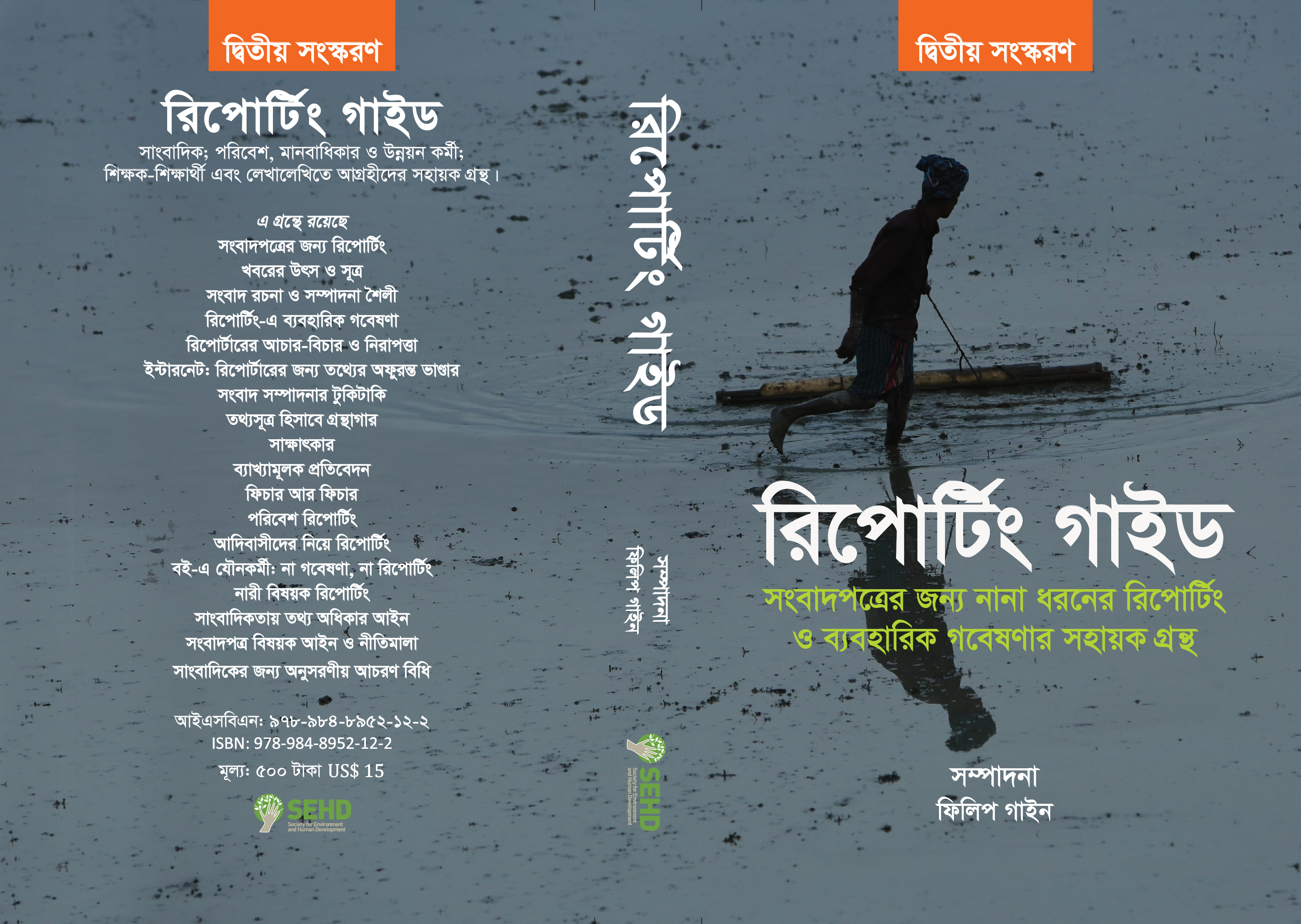Edited by Philip Gain
Published by Society for Environment and Human Development (SEHD)
Second edition published 2015, Bangla, PBK, 411 pages
Tk.500/US$15
 Powerful reporting is essential for newspapers and other news media. It requires a great deal of investigation, analysis, deep background, primary information and much more. The book, REPORTING GUIDE is all about powerful reporting. It is an essential guide for journalists, students, academics of journalism, environment and human rights activists and writers who care about excluded, deprived and marginal people.
Powerful reporting is essential for newspapers and other news media. It requires a great deal of investigation, analysis, deep background, primary information and much more. The book, REPORTING GUIDE is all about powerful reporting. It is an essential guide for journalists, students, academics of journalism, environment and human rights activists and writers who care about excluded, deprived and marginal people.
Since its inception, Society for Environment and Human Development (SEHD) has promoted investigative reporting and action-oriented research. It is from this commitment that it has regularly organized training and workshops to share skills required for research, documentation and reporting. Skills and materials that the professional journalists, researchers and activists have shared in these training and workshops provide useful guidance for powerful reporting and writing. REPORTING GUIDE puts together these materials, practical tips and advices that can be used in any training for journalists and activists.
The book contains theoretical discussions on different kinds of reporting. But what make their write-ups unique is the use of practical experiences and anecdotes. In this part of the book, special attention has been given to practical tips, use of information sources, structures of different reports, editing tips and the professional behavior of journalists.
One important write-up of the book provides all that a journalist or an activist needs for effective use of applied research techniques in reporting. A long write-up discusses the details of feature writing and provides many tips for feature writers.
Discussion on reporting environment, ethnic communities, and women issues explain how important it is for journalists to investigate, interpret and accommodate deep background in reports. The experiences of two journalists in reporting on sex workers illustrate how a serious reporter eventually becomes an author on a subject.
One unique feature of the book is the use of many published reports, features, interviews, and quotes with different write-ups. This confers a meaning to the theoretical discussion.
Contributing writers: Hassan Shahriar, Dr. Hossain Zillur Rahman, Khondker Ali Ashraf, Hedayat Hossain Morshed, Farid Hossain, Philip Gain, Qurratul-Ain-Tahmina, Dulal Chandra Biswas, Partha Shankar Saha, Mobashshira Farzana Mithila, Ranjan Karmaker, Lucille Sircar, Sanjida Khan Ripa, Khadiza Khanam and Arafat Ara.
